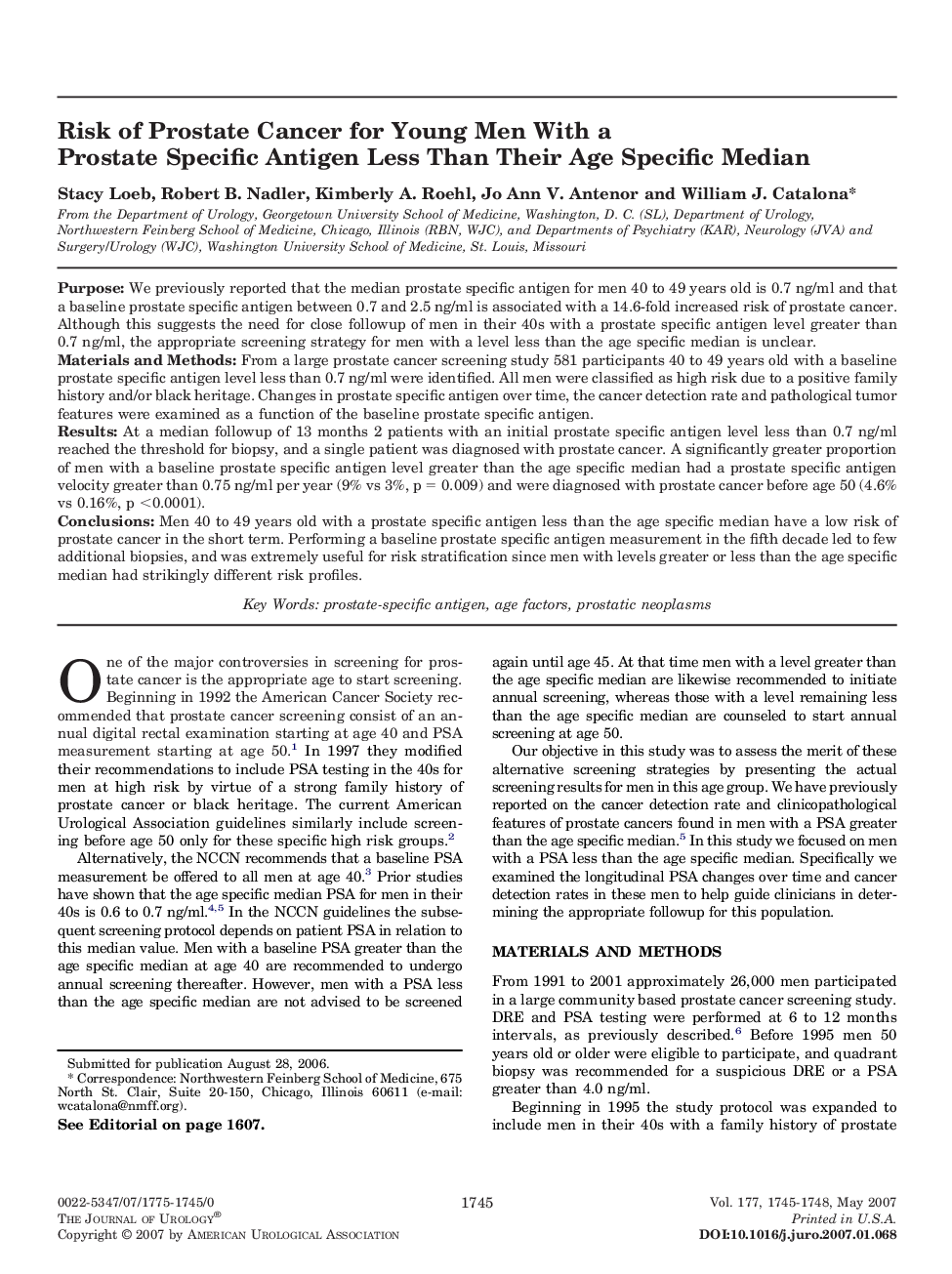| Article ID | Journal | Published Year | Pages | File Type |
|---|---|---|---|---|
| 3873786 | The Journal of Urology | 2007 | 4 Pages |
PurposeWe previously reported that the median prostate specific antigen for men 40 to 49 years old is 0.7 ng/ml and that a baseline prostate specific antigen between 0.7 and 2.5 ng/ml is associated with a 14.6-fold increased risk of prostate cancer. Although this suggests the need for close followup of men in their 40s with a prostate specific antigen level greater than 0.7 ng/ml, the appropriate screening strategy for men with a level less than the age specific median is unclear.Materials and MethodsFrom a large prostate cancer screening study 581 participants 40 to 49 years old with a baseline prostate specific antigen level less than 0.7 ng/ml were identified. All men were classified as high risk due to a positive family history and/or black heritage. Changes in prostate specific antigen over time, the cancer detection rate and pathological tumor features were examined as a function of the baseline prostate specific antigen.ResultsAt a median followup of 13 months 2 patients with an initial prostate specific antigen level less than 0.7 ng/ml reached the threshold for biopsy, and a single patient was diagnosed with prostate cancer. A significantly greater proportion of men with a baseline prostate specific antigen level greater than the age specific median had a prostate specific antigen velocity greater than 0.75 ng/ml per year (9% vs 3%, p = 0.009) and were diagnosed with prostate cancer before age 50 (4.6% vs 0.16%, p <0.0001).ConclusionsMen 40 to 49 years old with a prostate specific antigen less than the age specific median have a low risk of prostate cancer in the short term. Performing a baseline prostate specific antigen measurement in the fifth decade led to few additional biopsies, and was extremely useful for risk stratification since men with levels greater or less than the age specific median had strikingly different risk profiles.
